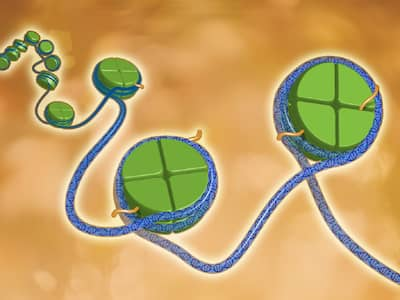
Epigenetic changes can be passed down from parents to offspring, altering gene expression patterns for generations.
Gene expression plays a crucial role in overall health and hence learning about how gene activity is important. Epigenetics is a field that delves into the ways in which our diet can impact gene expression and the overall health. Quite strangely, our choices of lifestyle can really shape the destiny of our genes. Epigenetics is the study of changes in gene activity that do not involve alterations to the underlying DNA sequence. It determines whether the particular gene is active or inactive. There are some important factors that can influence epigenetics like environmental factors, including diet, stress, and exposure to toxins. Nutritional epigenetics focuses on how our dietary choices can modify these epigenetic marks, subsequently impacting our health.
The Diet-Gene Relationship
The diet gene relationship is unique and our diet can have a direct influence on epigenetic modifications, effectively shaping the expression of our genes. Certain nutrients in our diet act as methyl donors or cofactors for enzymes that add or remove chemical groups on our DNA. These modifications have the ability to either enhance or suppress gene expression.
Impact on Health
The relationship between diet, epigenetics, and health is profound. Epigenetic changes can impact chronic diseases, including cancer, cardiovascular disease, diabetes, and obesity. For example, a diet rich in folate, a vitamin-B found in leafy greens, can support DNA methylation and reduce the risk of certain cancers. While, diets high in added sugars and saturated fats can induce epigenetic changes that contribute to metabolic disorders. So a proper diet is essential.
Impact On Future Generations
Surprisingly, nutritional epigenetics has the potential to impact not only our own health but also that of future generations. Epigenetic changes can be passed down from parents to offspring, altering gene expression patterns for generations. This phenomenon, known as transgenerational epigenetic inheritance, highlights the long-term consequences of our dietary choices. Hence, your dietary choices have a huge impact on your children as well.
What Is Precision Nutrition?
Nutritional epigenetics underscores the concept of precision nutrition, where dietary recommendations are made according to an individual’s unique genetic makeup and epigenetic profile. It is not important that same things work for everyone so what may work for someone may not work for the other. An individual’s epigenetic markers can help the healthcare practitioners to provide personalized dietary advice that maximizes health benefits.
READ RELATED: 5 Steakhouse Chains With the Best Prime Rib & Ribeye, According to Chefs
The Mediterranean Diet Paradigm
The Mediterranean diet is rich in fruits, vegetables, whole grains, and healthy fats, has garnered attention as it supports positive epigenetic changes. Person adhering to the Mediterranean diet is associated with DNA methylation changes that can lower the risk of chronic diseases. The consumption of antioxidant-rich foods in this diet, such as olive oil and berries, can combat oxidative stress, a key driver of epigenetic changes.
Nutritional Choices Matter Always
The emerging field of nutritional epigenetics underscores the notion that our dietary choices have far-reaching consequences for our health and the health of generations to come. SO It is a reminder for everyone that by choosing a healthy lifestyle we can easily influence the destiny of our genes. Incorporating nutrient-dense foods, avoiding harmful additives, and maintaining a balanced diet can positively impact our epigenetic landscape and contribute to overall well-being.
Total Wellness is now just a click away.
Follow us on
Don’t Miss Out on the Latest Updates.
Subscribe to Our Newsletter Today!
window.addEventListener(‘load’, (event) => {
$(‘#commentbtn’).on(“click”,function(){
(function(d, s, id) { var js, fjs = d.getElementsByTagName(s)[0]; if (d.getElementById(id)) return; js = d.createElement(s); js.id = id; js.src = “//connect.facebook.net/en_US/sdk.js#xfbml=1&version=v2.3”; fjs.parentNode.insertBefore(js, fjs);}(document, ‘script’, ‘facebook-jssdk’));
$(“.cmntbox”).toggle();
});
});








